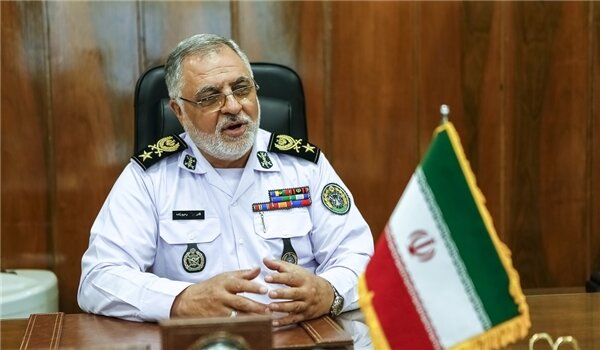Commander: Iran monitoring all aerial moves in region

TEHRAN – The second-in-command of the Khatam al-Anbia Air Defense Base has said his forces, equipped with the most state-of-the-art systems and radars, monitor the moves of all flying objects in the region.
“The integrated air defense network precisely monitors all air moves in the region fully and vigilantly,” Brigadier General Qader Rahimzadeh told FNA on Tuesday.
Given the equipment of the country's integrated air defense system with various radars that operate in different frequencies, there is no spot in Iran that is not covered by our integrated system, he said, adding that Iranian experts have also manufactured mobile radars to be used in any place and under any condition if necessary.
General Rahimzadeh underlined that operational durability, equipment with special systems for resistance and confrontation against any electronic jamming attempts by enemies are the clear specifications of the Iranian radars.
He further declared that Iran is in the final stages of testing its home-made low-altitude air defense system named “Oqab (Eagle)”, adding that the country has also made good progress in developing weapons to target flying objects with laser power.
General Rahimzadeh said enemies are aware of Iran's military capabilities and have arrived at the conclusion that they will receive a crushing response from the country in case of a slight aggression, adding that the Islamic Republic has displayed its power to them on several occasions so far.
The Islamic Revolution Guards Corps (IRGC) Aerospace Force shot down an American spy drone over the territorial waters of Iran near the Strait of Hormuz at dawn on June 20.
After the incident, U.S. President Donald Trump said the U.S. Air Force was “cocked and loaded” to attack three Iranian targets, but he called off the strike with 10 minutes to spare after being told that the airstrike might kill as many as 150 people.
Trump said in a series of tweets that he decided that the death toll was not a proportionate response to the Iranian downing of a U.S. spy drone off the Iranian coast.
After Trump's remarks, IRGC Aerospace Force Commander Brigadier General Amir Ali Hajizadeh said that his forces could have shot down a U.S. P8 aircraft with 35 on board which was violating Iran’s airspace, but decided to shoot down the drone to only send a message to Washington.
“We intended to send a message to American terrorists in the region,” Brigadier General Hajizadeh said, adding that his forces had also traced a military P8 aircraft violating the airspace of Iran.
“Along with the American drone was an American P8 aircraft with 35 on board, and it was also violating our airspace and we could have downed it too,” he said, adding, “But we did not do (shoot down) it, because our aim was to warn the terrorist American forces.”
General Hajizadeh also stressed that Iran was not after war but was fully ready to defend itself, adding that the fate of the downed U.S. spy drone was waiting for any intruding flying object.
“Our response to anything trespassing Iranian territory is like this, and if such acts of aggression are repeated, our response will also be the same," General Hajizadeh said.
“We don’t embrace war but we are ready to fully defend the country,” he said.
“We possess a collection of American drones which is a proof that America has violated Iran’s airspace and shows that they don’t want to respect international law,” General Hajizadeh said.
“If such an aggression is repeated, we will add other American (military) products to complete this collection,” he said.
“America’s measure was in violation of international law and we acted according to our legitimate responsibility,” Hajizadeh said, adding, “It is possible that an American general or some operators were behind this American aggression, we don’t know that. But that measure is a violation of international aviation rules by a spy drone which then received our natural response."
SP/PA
